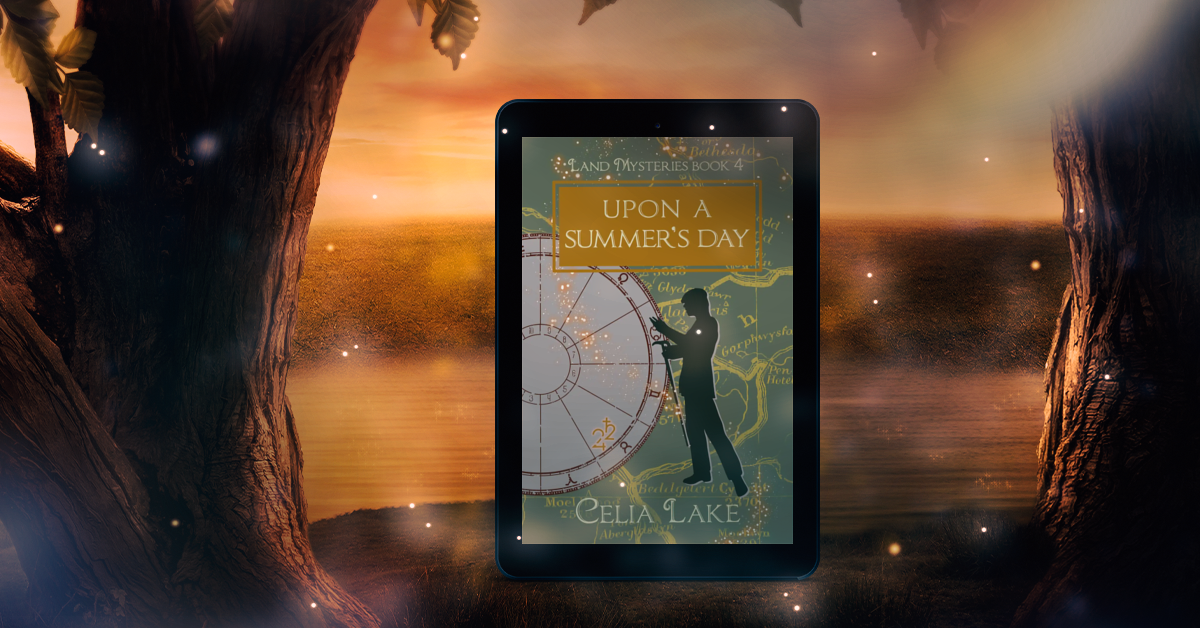The Pact has been a foundational magic of Albion since 1484. After my post about apprenticeship, I had several great questions from people who wanted to know more about specific aspects. This post covers the basics of the Pact. The following post (up on the same day) gets into making the Pact in more detail.

The Pact
Basically, the Pact is a magical agreement that enforces itself. Set up in 1484 as part of a complex treaty between the Fatae and the humans of Albion, it is basically a massive geas that is anchored into the land and land magic and into the people of Albion. If someone makes the Pact (a brief magical ritual, more below), and then does something that goes against it, the magic involved will react to prevent that breech.
The Pact involved a number of complex treaty agreements. These range from protection of Fatae and Cousin held spaces to how things like mining near Fatae spaces is handled. It also included agreements for certain kinds of magical skill sharing. Portals came out of this, also some kinds of Healing techniques. Both sides have generally felt it’s a fair deal for them. The Council exists in large part to make sure that no one causes trouble about those agreements.
The Pact also involved an agreement not to speak or take actions that would reveal Albion’s magic around anyone who hasn’t also made the Pact.
The experience of the Pact
If someone does something against the Silence, there are consequences. For innocents (children and people who don’t realise what they’re doing, more in the next post), the Pact provides a sort of fog effect. For people who should know better, the Pact will initially give a sense of pressure around someone’s most demanding fears. If someone continues doing what they’re doing that’s against the Pact, that will become stronger and stronger.
Why is it fear? Fear is the emotion that’s most likely to distract people from what they’re doing and make them shut up or at least say something entirely different. As various characters mention, the Pact is sometimes a blunt instrument.
The underlying magical structure also provides a foundation for binding magical oaths and for the truth magic. The former is limited by people’s ability to make a sensible oath. The latter has some other considerations. The truth magics are more complex to set up. They need either supporting architecture or a specific combination of skill and ties to the land.
Brushing against a breech
That same fear will also come to the surface if someone makes an oath on the Silence, anchoring the oath in the foundational magic of the community. At various points in the books, people notice that, or sometimes get a brief impression of someone else’s fear.
Some people routinely make oaths on the Silence. They’re common for members of the Guard, the Courts, or the Penelopes (or anyone else dealing with legal situations). Your average crafter or farmer, however, might make an oath on the Silence more on the order of every five to twenty years. Mostly, that happens if there’s a court case or something similar where they are involved or a witness.
(A side note: oaths on the Silence is also how Albion handles operational security and the magical journals in wartime. There are a set of standard oaths people took not to share relevant material via journal or letter without direct and specific authorisation, the same as uncensored letters would need.)
For many of my characters, their experiences in the Great War or Second World War are pretty core to whatever fear they feel.
For others, it’s something that has changed over time. Gabe’s is a massive snake and everything that means to him from the time he’s 18. What the snake means changes for him over his adulthood, and so does his experience of the Silence.
Outside of Albion
The Pact is not in play outside of Albion in the same way. Because of colonisation, people in the British empire who interact regularly with the British magical community do almost always make the Pact. Certainly anyone who spends more than a week or two in Britain does.
In a lot of cases outside of Albion’s direct lands, it’s binding because people agree it’s binding. (In this case, the act of deliberately connecting to it has a bit more oomph.)
However, people in the empire who do not go through British schools or institutions often don’t make it. In The Fossil Door, Gabe and Rathna discuss what magic looks like in India in that case. In their case, the fact they’re bound by the Pact means they need to be cautious about what they say and to whom – they can’t just ask!
One notable thing is that the Pact is unique to Albion – other countries in Europe, and other places around the world (barring that colonial British empire problem) did different things. This plays out in various ways over spaces and time. In practice people who are magical in those countries tended to form their own communities and have their own methods for determining who was safe to talk to about magic.
American custom is basically to follow the Pact, but it’s much less binding in magical terms. (Just, basically still a solid idea not to talk about magic where others can hear.) There are some individual lines of training and practice where people make an equivalent oath. In that case, it’s anchored by the individuals and ritualists.
The next post will deal with the actual process of making the Pact.
